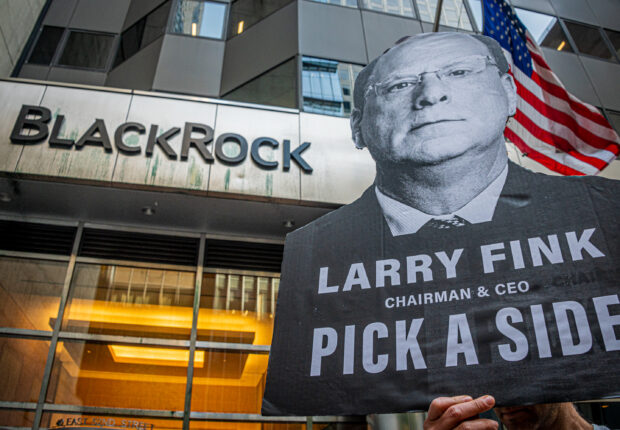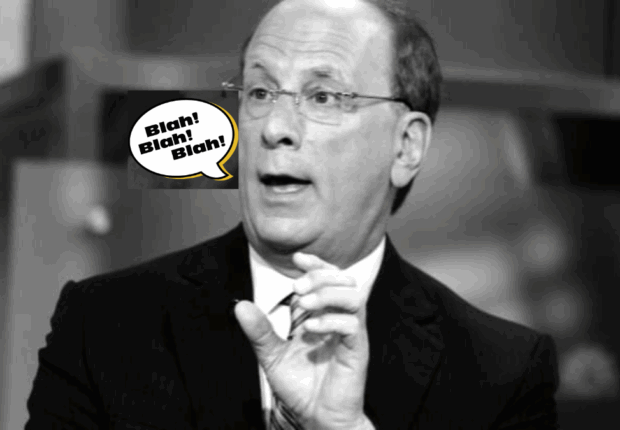BlackRock has communicated that it is willing to vote off directors and has expressed concern around the risks associated with deforestation, but until that concern is backed up with clear, transparent, and public policies, its actions fall short of the leadership needed to address this growing global crisis.
In June 2020, Friends of the Earth (FOE) and Amazon Watch (AW), core partners of the BlackRock’s Big Problem network, released a set of baseline principles to form the basis for asset managers’ policy on forests and human rights, based upon existing international laws and principles.
The key takeaway from these principles is that the best way to protect the world’s tropical forests is to recognize and respect the statutory and customary rights and self-determination of the communities who live in, access, and manage these forests. This requires, at minimum, compliance with the internationally recognized right to Free, Prior and Informed Consent (FPIC), consultation on policies and operations that affect Indigenous Peoples and local communities, and accountability for rights violations. Neither BlackRock nor any other large asset managers have explicit policy or publicly available guidelines to ensure respect for Indigenous Peoples and local communities’ land rights or rights to FPIC, nor standards to assess companies’ adherence to internationally-accepted norms.
In late June, Ceres, in partnership with BlackRock, published guidelines for investors to further address climate risk in their portfolios by reducing deforestation. This is an important step, in that it urges investors to address fossil fuels, the biggest driver of climate change, as well as the second biggest: deforestation. The guidelines provide clear information on how deforestation contributes to climate change, as well as some steps investors can take to reduce deforestation-driven climate risk in their portfolios..
So what exactly is BlackRock doing on deforestation?
The world’s biggest asset manager apparently contributed greatly to the preparation of this report, and Head of Stewardship, Michelle Edkins, participated in the launch webinar. Yet BlackRock itself has not publicly announced any sort of deforestation policy to guide its engagement or use to hold accountable its portfolio companies. In fact, the new Ceres guidelines explicitly include a disclaimer that “the feedback provided by these firms does not represent an investment endorsement or recommendation and does not reflect any policies or positions of BNP Paribas Asset Management, Blackrock, or the NYC Comptroller.”
At bare minimum, BlackRock should be thoroughly and transparently applying the Ceres guidelines to its own operations. Furthermore, if BlackRock, the largest investor in companies tied to deforestation, is serious about addressing deforestation, it will need to go beyond these guidelines.
BlackRock is among the top three shareholders in 25 of the world’s largest publicly listed soy, beef, palm oil, pulp and paper, rubber, and timber companies, including several that have been linked to last year’s devastating fires in Brazil and Indonesia. Its holdings in these sectors are only increasing — by more than half a billion dollars since 2014. BlackRock also holds more than 700 billion dollars in shares and bond holdings in members of the Consumer Goods Forum, a consortium of the world’s 400+ top consumer brands, which broadly failed to meet their commitments to end deforestation in their supply chains by 2020. In fact, since that commitment a decade ago, global tree cover loss has increased by 43 percent.
With the threat of a deadlier fire season looming and enforcement of deforestation laws effectively curtailed in some countries by the COVID-19 pandemic, BlackRock needs to go well beyond open-ended engagement with forest destroying companies. To begin, it needs to articulate clear standards it will use to gauge companies’ approaches to the problem, as well as the consequences for companies that drive deforestation and its harms to people and biodiversity.
BlackRock and other large asset managers have the responsibility to go beyond the Ceres guidance to specifically address the rights of Indigenous Peoples, Afro-descendents, and other traditional communities.
While Ceres’ guidelines provide a starting point for addressing deforestation-driven climate risk, they do not include necessary aspects of preventing deforestation or address the concomitant risks associated with deforestation-risk commodities. They also do not get into sufficient detail about how investors – especially large ones with significant influence like BlackRock – should operationalize these guidelines.
As laid out in our Key Principles for Asset Managers on Forests and Human Rights, essential to stemming deforestation is respect for Indigenous Peoples and local communities’ rights, particularly the right to free, prior, and informed consent for business activities on ancestral and traditional lands. Respect for Indigenous Peoples rights – including accountability for violence against land and environmental defenders – is an important indicator of deforestation risk, given that once deforestation is occurring, multiple rights of forest-dwelling peoples have likely already been violated.
When it comes to implementation,BlackRock must commit to concrete action in the following ways:
- Voting: BlackRock’s voting on deforestation must align with its rhetoric on deforestation; its engagement is insufficient to the urgency of the problem.
- Time-bound engagement and potential exclusion of noncompliant companies: Just as consumer goods companies need to have time-bound commitments to rid their supply chains of deforestation, investors need to have time-bound commitments to rid their portfolios of deforestation if companies do not improve.
- Adherence to global norms: The guidelines name a number of finance and investor efforts to incorporate financial climate risk into disclosure and engagement approaches, as well as references to the Accountability Framework, an NGO-led process to increase corporate accountability regarding deforestation. However, the guidelines fall short of providing a much-needed reminder that investors need to improve their own compliance with international norms and standards regarding the human rights and land rights dimensions of deforestation.
- Transparency and accountability to primary stakeholders: The people with the most at stake in facing deforestation are not business roundtables, NGOs, or scientists. They are the Indigenous peoples, Afro-descendents, peasant farmers, and others whose lives and livelihoods are most directly impacted by deforestation-risk commodities. Investors need to be directly accountable to these peoples.
There is no time to waste
In Brazil last year, fires set by illegal loggers and ranchers were the worst in a decade. The fires were intentional, blazing the path for soy and cattle production to expand deeper into the Amazon and the Cerrado, the country’s second most biodiverse biome. The Amazon fires sparked international outrage at the agribusiness interests behind the fires, including from some of BlackRock’s peers. More and more scientists are sounding the alarm that if deforestation continues, the Amazon could soon hit a tipping point of deforestation after which it would no longer be a rainforest, resulting in cascading impacts in the region and potentially the entire hemisphere.
Indonesia, too, lost over two million acres of rainforest to fires last year at the hands of agribusiness, mostly due to expanding palm oil and paper pulp plantations. One report tallied that 900,000 people across Indonesia suffered respiratory problems from the smoke. All told, nearly 10,000 square miles of tropical rainforests were destroyed in the Amazon and Indonesia last year. Indonesia’s 2020 fire season is fast approaching.
At the time of this writing, all signs point to a fire season in the Amazon and Indonesia that may be even deadlier than last year’s. BlackRock has communicated that it is willing to vote off directors and has expressed concern around the risks associated with deforestation. Until that concern is backed up with clear, transparent, and public policies, its actions fall short of the leadership needed to address this growing global crisis.

